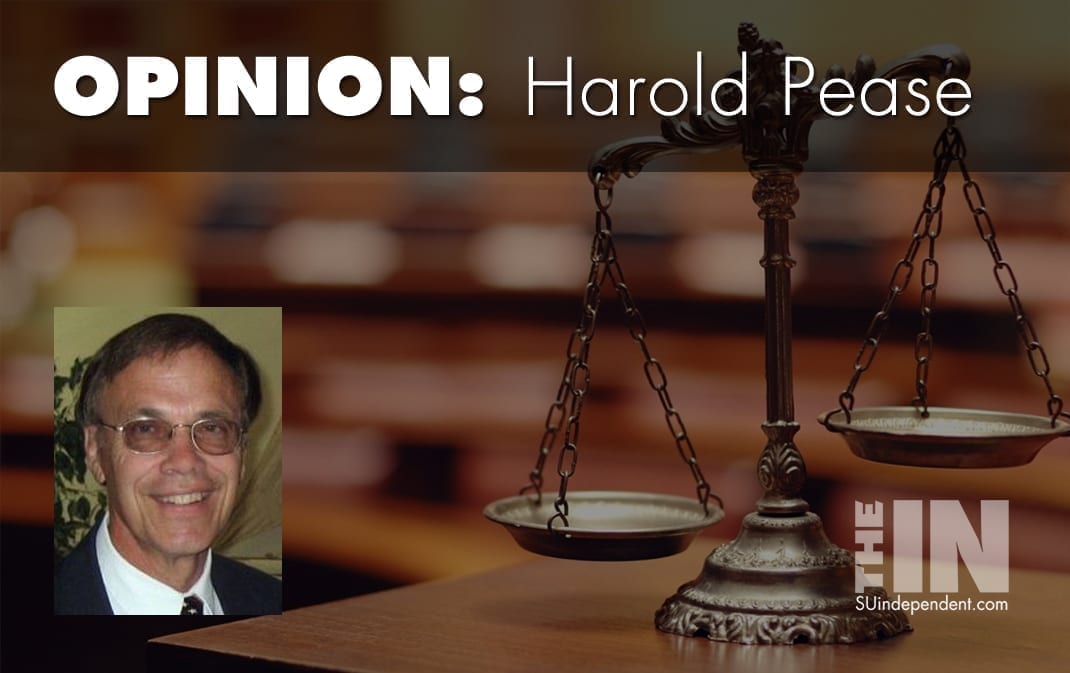
Can One Judge with a Stroke of a Pen Nullify Law?
The very thought of one unelected judge with a stroke of a pen nullifying law is unconscionable to most Americans but this has become common against the Donald Trump Administration blocking the executive function of the government at least 37 times. Before him, it was 20 times against Barack Obama. When this happens it is called an injunction, most are delayed for a time and overturned by a higher court. Consequently, Trump has had to ask for 20 emergency stays from the Supreme Court while these were resolved. No president has had to deal with such unconstitutional judicial overreach. This exceeds the combined number of all 42 presidents preceding him.
There are 663 Article 3 District Court judgeships across the country. Unfortunately, as practiced, any one of whom can issue a nationwide injunction against federal government action.
These lower district court judges have weaponized themselves against Trump with the complacency of Congress. In fact, it has become a major distortion of the separation of powers doctrine amplifying the judicial branch powers well beyond the Constitution and original intent. Not because Trump did anything particularly unconstitutional, but because one judge out of 663 across America said he had.
National injunction topics include travel bans, DACA, immigration, border wall, census citizenship, and the environment. Some call this judicial tyranny. Jefferson warned in 1820 that “to consider the judges as the ultimate arbiters of all constitutional question [is] a very dangerous doctrine indeed and one which would place us under the despotism of an Oligarchy.” James Madison’s address to the Virginia Ratifying Convention of 1788 was specific to this silent danger, “There are more instances of the abridgment of the freedom of the people by gradual and silent encroachments of those in power than by violent and sudden usurpation” (Assistant Attorney General Beth Williams Delivers Remarks on Nationwide Injunctions at the Heritage Foundation, February 4, 2019).
Judicial review by the Supreme Court of laws passed by Congress came about in 1803 with the Marbury v. Madison decision, fully 14 years after the Constitution was formed, thus wording nullifying created law is not found in the Constitution. Imagine the Founding Fathers placing in the Constitution the power of a very few—now nine—to undo what the majority of both the House and the Senate had agreed to, then signed by the president. Essentially the court gave itself the power to nullify what hundreds of legislators had agreed to. That judicial review has become sacrosanct by past practice (nobody opposed it enough to end it), it remains not actually in the Constitution—not even in a subsequent amendment—so let us try other constitutional remedies first, dealing with district judges, before challenging judicial review.
Actually District Court judges, those issuing the injunctions blocking presidential authority, are not in the Constitution as a permanent fixture either—only at the behest of Congress. Article III only created the Supreme Court but did authorize “such inferior Courts as the Congress may from time to time ordain and establish.” Thus in adjusting to the workload, Congress has the flexibility to enlarge or contract the District (inferior) Courts. Unfortunately, the government seldom contracts.
Notice also in Article III the division of powers of the court into original and appellate jurisdictions. In original jurisdiction, they operate independently from the legislative or executive branches, and these are listed as “all Cases affecting Ambassadors, other public Ministers and Consuls, and those in which a State shall be Party.” While in appellate jurisdiction, essentially everything else, they function under the direction of Congress “both as to Law and Fact, with such Exceptions, and under such Regulations as Congress shall make.”
Such Congressional oversight is now desperately needed. For instance, where did District Court judges get the authority to by-pass the Supreme Court becoming proactive in stopping the executive branch of government from executing the law? Typically the Supreme Court has to wait until someone challenges a law, “has standing,” a term used to suggest “harmed by legislation.” So the Supreme Court is a passive organization until called to action. What the District Court judges are doing is initiating aggression on their own. Article III also authorizes Congress to impeach justices should their misbehavior be demonstrated. We suggest using it on District Court judges issuing injunctions.
Congress or the Supreme Court needs to remind the District Court judges that their power is limited to resolving single cases between specific parties who brought a case before them, not issuing national edicts restricting a president’s ability to function nationally within his executive authority. Justice Clarence Thomas urged colleagues that “if federal courts continue to issue them, th[e] Court is duty-bound to adjudicate their authority to do so” (Assistant Attorney General Beth Williams delivers remarks on nationwide Injunctions at the Heritage Foundation, February 4, 2019). The Supreme Court restricting itself should be the first option, this followed by Congress if still not satisfied.
The Founding Fathers gave the States one additional option for bringing any of the three branches of government back into line. It allows them to use the 10th Amendment of the Constitution to nullify the law in their state, but the usage of this is the last resort when the two other branches of government are unwilling or unable to bring in line the rogue branch.
Viewpoints and perspectives expressed throughout The Independent are those of the individual contributors. They do not necessarily reflect those held by the staff of The Independent or our advertising sponsors. Your comments, rebuttals, and contributions are welcome in accordance with our Terms of Service. Please be respectful and abide by our Community Rules. If you have privacy concerns you can view our Privacy Policy here. Thank you!
Click here to submit an article, guest opinion piece, or a Letter to the Editor




